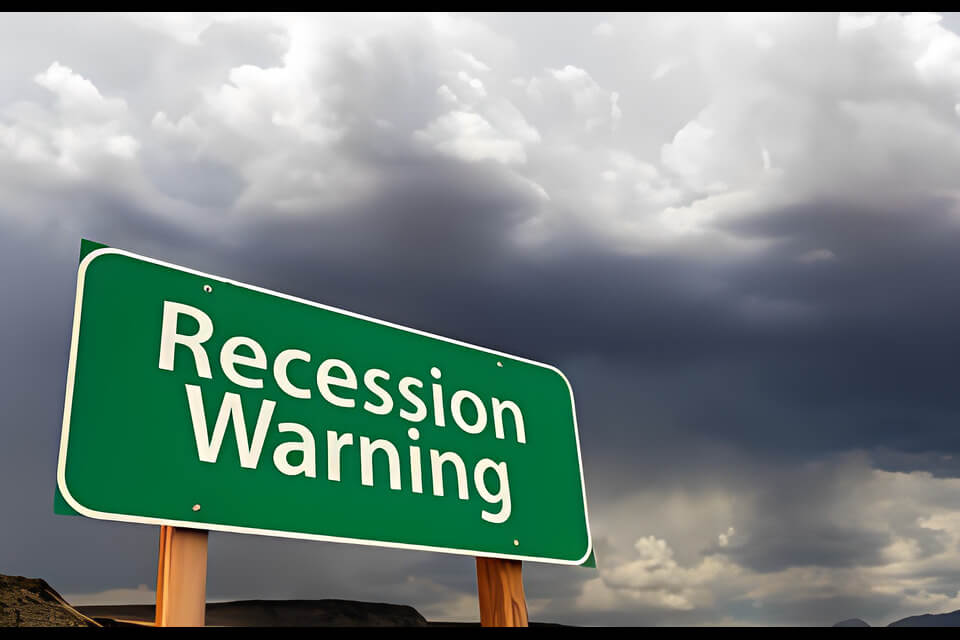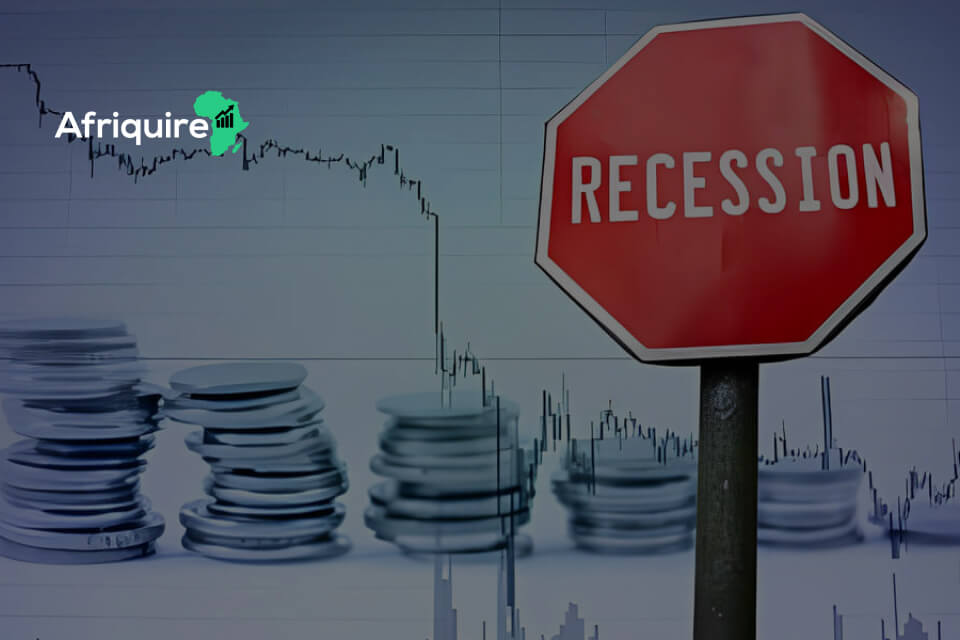In the fast-changing world of stock investing, knowing how to judge the performance of blue-chip stocks during tough times is a key skill. Smart investors use this knowledge to stay ahead. In this article, we take a close look at blue-chip stocks and how they often stay strong during recessions.
Again and again, these stocks have shown they can survive—and even thrive—when the economy struggles. That strength is the heart of what we explore here. So, we’ll look at how blue-chip stocks have done in past downturns. Then, we’ll share simple, clear strategies you can use to invest wisely when the market takes a hit.
As you’ll see, even in hard times, there are smart ways to grow your money. Let’s dive in.
Understanding Recessions
What is a Recession?
A recession is a serious event in the world of economics. It means the economy is slowing down in a big way. You can spot a recession by looking at a few key signs. First, the country’s Gross Domestic Product (GDP) drops. Then, unemployment goes up. At the same time, people start spending less money.
It’s also important to know that a recession doesn’t come and go quickly. Instead, it usually lasts for several months. So, while it may seem like just a rough patch, it’s actually a longer period where the economy keeps shrinking.
Why Do Recessions Occur?
Recessions don’t just happen by chance. They are a natural part of the economic cycle. That’s why it’s so important for investors and economists to understand what causes them. Recessions can start for many different reasons, and each one can have serious effects. Here are a few common causes:
Financial Crises:
Sometimes, too much lending or risky investing can cause big problems. When banks or markets fail, the whole economy can feel the impact. A good example is the 2008 housing crash.
High Inflation:
When prices rise too fast for too long, people can’t afford as much. This hurts purchasing power and slows the economy. Often, central banks raise interest rates to fight inflation, which can lead to a recession.
External Shocks:
Events like natural disasters, wars, or global health issues—such as the COVID-19 pandemic—can suddenly shake up the economy. These events are often out of any one country’s control.
So, while recessions can feel scary, they are also normal. Much like ocean tides, they rise and fall. After growth, a slowdown can act as a reset. It’s part of the rhythm that shapes long-term economic health.

Impact on Financial Markets
When a recession hits, it shakes up the financial markets. Stock prices often drop. At the same time, there’s more fear, more ups and downs, and a lot more guesswork. Because of this, many investors get nervous. So, they pull back and stop investing as much. This creates a more negative, or bearish, mood in the market.
But even in times like these, something interesting happens. Blue-chip stocks—the well-known, trusted companies—tend to hold up better. While many stocks fall sharply, blue-chip stocks often stay more stable.
This strength isn’t just luck. It comes from what makes blue-chip companies different. They have strong business models, smart leadership, and a long history of steady performance. That’s why, during a recession, these stocks can be a safer place for your money.
What Are Blue-Chip Stocks and Why Do Investors Flock to Blue-Chip Companies?
Blue-chip stocks are shares in big, well-known companies. These companies have strong finances, steady profits, and a long history of success. They lead their industries and often pay out regular dividends. But what makes them so attractive—especially during tough times?
Safety and Growth Potential:
First, blue-chip stocks are known for being both safe and strong. That’s a rare mix. Think of them like the anchor of a ship during a storm. When the market is rocky, investors look for stability. And that’s exactly what blue-chip stocks offer. They often hold up better than other stocks during a recession. So, investors feel more secure putting their money into them.
Dividend Payouts:
Second, these companies usually keep paying dividends, even when the economy is down. That means investors still get steady income, even if other earnings take a hit. This extra layer of support makes blue-chip stocks even more appealing when money is tight.
In short, during hard times, blue-chip stocks give investors both peace of mind and a way to keep growing their wealth.
Blue-Chip Stocks in Economic Downturns
Historical Resilience
One big reason many investors turn to blue-chip stocks during a recession is their proven strength over time. This strength isn’t just temporary—it’s built into how these companies operate. Over and over, blue-chip stocks have shown they can survive hard times. Even more, they often come out stronger once the economy recovers.
Case Studies: Past Recessions
To really see how strong blue-chip stocks can be, it helps to look at past recessions. These real-life examples show just how well these companies can handle economic trouble. They don’t just survive—they bounce back with power and confidence.
The Great Recession of 2008
The 2008 financial crisis is one of the most important events in recent economic history. It began with the collapse of the housing market and quickly spread to the whole world. Stock prices crashed, big banks struggled, and millions lost their jobs.
The Blue-Chip Resilience:
Even during this chaos, blue-chip stocks stood out. These companies had solid financial habits, low debt, and healthy cash flow. Because of that, they were able to take the hit better than most. Yes, their stock prices fell too—but not as sharply, and not for as long.
Bouncing Back Faster:
What really makes blue-chip stocks special is how fast they recover. After the worst of the 2008 crisis, many of these companies got back on their feet quickly. They used their strong foundations to adjust and move forward. Many kept paying dividends, which gave investors confidence and steady income when it was needed most.
So, history shows that blue-chip stocks don’t just survive recessions—they shine through them.

Industry Performance of blue-chip stocks during historical recessions
As we take a closer look at blue-chip stocks and how they hold up during recessions, it’s clear that not all sectors perform the same. This is an important point for investors. If you want to get the most out of blue-chip stocks, you need to understand how different industries react during tough times.
Analysis of Different Industries
Sectoral Differences:
One key lesson is that blue-chip stocks don’t all move in the same way. Their performance often depends on the industries they belong to. For example, sectors like healthcare and consumer staples usually stay strong during a recession. These are known as “defensive” sectors because people still need medicine, food, and household items—no matter how the economy is doing.
The Technology Puzzle:
On the other hand, tech companies can be more up and down during recessions. That’s because they often rely on consumer spending and fast-changing markets. When people cut back on spending, these companies can feel the hit more than others.
Sector-Specific Strategies
Tailored Investment Plans:
Because of these differences, investors should take a targeted approach. One smart move is to invest more in strong sectors like healthcare during a recession. These companies often benefit from steady demand for medicine and services, even when the economy slows down.
Focus on Leaders:
Also, within each sector, it’s smart to find the top performers. These industry leaders usually have more resources, stronger brands, and better management. They’re often better at adjusting to change and riding out hard times. So, adding them to your portfolio can bring more stability when markets are rough.
In short, not all blue-chip stocks are the same. By choosing the right sectors and the best companies within them, you can build a stronger, safer investment plan during a recession.
Strategies for Investing in Blue-Chip Stocks During Recessions
Risk Management and Diversification
Diversification’s Protective Shield: Diversifying your investments across different sectors with blue-chip stocks can protect your portfolio during a recession. This approach is called diversification. It helps lower your risk by avoiding too much focus on one industry. If one sector struggles, strong performance in another can help balance things out. That way, your whole portfolio isn’t hurt by a single weak spot.
Long-Term vs. Short-Term Strategies
Match Your Strategy to Your Risk Level:
It’s important to match your investment goals with how much risk you’re comfortable taking. Blue-chip stocks work well for both long-term and short-term plans. If you’re investing for the long run, you can enjoy steady growth over time. Compounding returns from dividends and stock gains can build wealth slowly but surely.
On the other hand, short-term investors can look for deals. During a downturn, some blue-chip stocks may be undervalued. These can offer a chance for quick gains once the market starts to recover.
Identifying Undervalued Blue-Chip Stocks
Look for Hidden Opportunities:
Sometimes during a recession, solid companies get overlooked. Their stock prices may fall for reasons that have nothing to do with their long-term value, like market sentiment or short-term challenges. This creates a window of opportunity. With good research and a careful eye, you can spot blue-chip stocks that are temporarily cheap. Buying them at a discount can lead to strong returns as the economy bounces back.
In short, using smart strategies and staying diversified can help protect and grow your investments—even during tough times.
Lessons Learned and Future Outlook
Key Takeaways from Historical Performance
The lessons we learn from how blue-chip stocks have done during past recessions are very valuable. They show us why having a diversified portfolio is so important. Spreading investments across different industries, each with its own level of strength, helps protect your money. Also, history teaches us the power of thinking long term. Over time, growth adds up, and this compounding effect can help build real wealth.
Applying These Lessons
Using these lessons in your own investment plan gives you tools to face future downturns with more confidence. Whether you are a long-term investor focused on steady growth or a trader looking for short-term chances, understanding how blue-chip stocks behave in different sectors can improve your decisions. It helps you know when to hold, buy, or sell.
Predicting Future Trends
Predicting exactly what will happen next is never easy. But looking at past trends can give clues about future chances after a recession. When you use what history shows, you can better prepare your portfolio. This way, you are ready to take advantage of new opportunities and protect your investments through all the ups and downs of the market.

Frequently Asked Questions
1. Are all Blue-Chip stocks equally resilient during recessions?
All Blue-chip stocks are not equally resilient during recessions because of sector-specific differences, but most blue-chip stock companies are large-cap companies that have been in the market for long and have proven to withstand and manage market challenges, though every blue-chip company has a different strategy.
2. How can investors identify undervalued Blue-Chip stocks during a recession?
By doing a detailed stock analysis to know if the stock price is underpriced.
3. What are the risks associated with investing in Blue-Chip stocks during recessions?
Blue-chip stocks are not without risks, and every investor must know their risk tolerance level, come up with a tailored strategy, and have patience in the market.
4. Do Blue-Chip stocks pay dividends consistently, even in recessions?
Most Blue-Chip stocks’ are also dividend-paying stocks, this is why they appeal to investors because of their ability to provide steady income.
5. Can you provide examples of specific Blue-Chip stocks that performed exceptionally well during historical recessions?
Coca-Cola Company is an example of a Blue-chip company that has withstood different economic downtowns; Coca-Cola Company manufactures carbonated soft drinks that are consumed by billions of people around the world.
Conclusion
In conclusion, blue-chip stocks have shown time and again that they can stay strong during recessions. Their solid business models and strong financial health help them handle tough times. This mix of safety and growth makes them a smart choice for investors who want both stability and long-term potential.
By learning how recessions work—and by understanding what makes blue-chip stocks special—investors can make better choices. It also helps to know how different sectors perform in hard times. This knowledge can guide you in building a safer and smarter investment plan.
Still, while past performance is helpful, it’s not everything. That’s why it’s important to stay diversified and keep a long-term view. These two things are key to growing and protecting your money in any market—good or bad.



